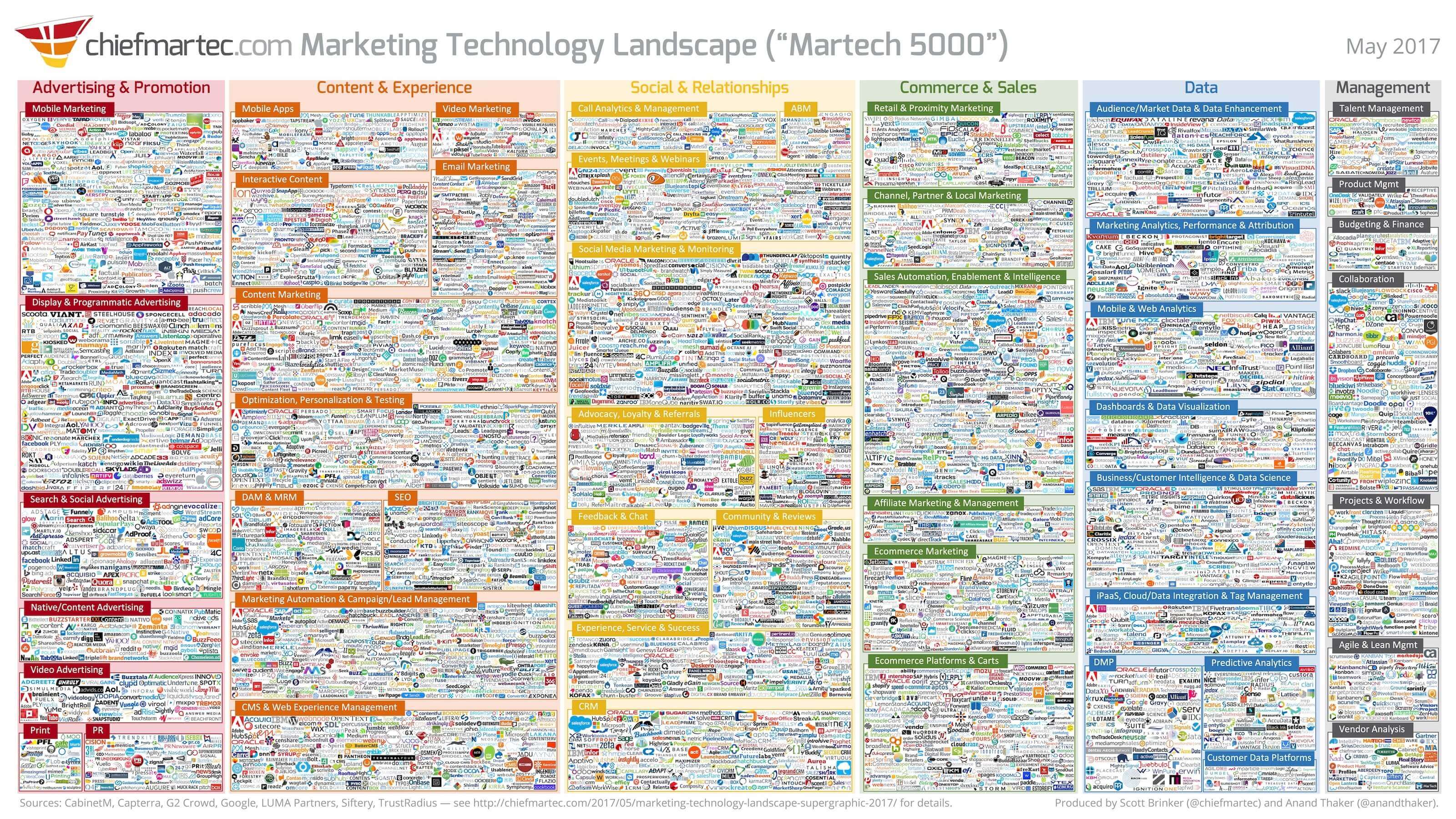5 Cloud-Based Marketing Software to Boost Your Business
Owning and managing a small business or startup is tough. You’re the marketer, the strategist, the designer, and the janitor. As a jack of all trades...
I know what I am looking for, and would like to chat.
A team of data-driven marketers obsessed with generating revenue for our clients.
Because the proof is in the pudding.
At Campaign Creators we live by three principles: Autonomy, Mastery, Purpose.

Netflix, Amazon, Spotify—what do all of these things have in common? All of these platforms represent the ways that technology is using big data to give consumers a better product.
As more and more people move to consuming content (and products) on their phones, the need for the convenience of having a consolidated source of personal information has grown. I mean, how easy is it to sign into everything using your Facebook login?
Besides being more convenient for the consumer, this provides a wealth of information for companies. It’s never been easier for a marketing team to use big data to create informed campaigns and reactive branding strategies. In fact, with one-third of modern marketing budgets spent on marketing technology (MarTech), and 20% going to IT cross-charges, CMOs are spending more on tech than CIOs. And with thousands of marketing software platforms, the landscape grows every year.

This convergence, however, comes with a major drawback: these two distinct departments must find a collaborative middle ground (which is why so many CMOs and CIOs work closely together these days).
Enter the Marketing Technologist; a special and rare blend of IT expert and marketing enthusiast that navigates the vast waters of data software. Four in five companies have one, but the role remains largely undefined. Perhaps it’s because many are learning on the job, or maybe it’s because these tech-minded marketing unicorns identify as something else.
This blog post is part of "Your Definitive Guide to Marketing Automation" blog series.
Though this role depends largely upon the organizational structure of the parent company, most marketing technologists have a level of technical depth that far surpasses the average marketer. These people are often computer science undergrads that go on to business school. With their tech backgrounds come their experimental attitudes. Unlike typical CMOs, a Chief Marketing Technologist (CMT) would incorporate a technological strategy into long-term priorities. They keep a keen eye on the overarching goals while maintaining a test-and-learn agenda.
Unlike the average IT person, however, marketing technologists aim to fix the fragmented user experience. Growth-driven design (GDD) is a perfect example of the intelligent infrastructure that MarTechies love. Instead of building out a huge website all at once, GDD fine-tunes a launch pad website over time in response to user engagement.
Marketing technologists bridge the gap between the online and offline worlds. They can take something as simple as a click and turn it into an ad strategy that hones in on targeted personas, increasing the chances of conversion. From analytics to strategy to migration and implementation, these people are reaching the right customers through a holistic approach to engagement.
Moreover, MarTech is the fastest and most intelligent way of growing your marketing strategy and your business. The question should be: why DOESN’T your marketing department have a technologist?
Want to learn more about marketing technology from choosing the right lead management platform to email automation best practices? Check out our Definitive Guide to Marketing Automation.

Owning and managing a small business or startup is tough. You’re the marketer, the strategist, the designer, and the janitor. As a jack of all trades...

For many, email marketing seems like a thing of the past. With our inboxes brimming on the daily with loads of unopened emails, it feels like there...

Aside from their outdated nature, ever notice the intrusiveness of billboards, commercials, mailings, and cold callings upon your personal life? The...